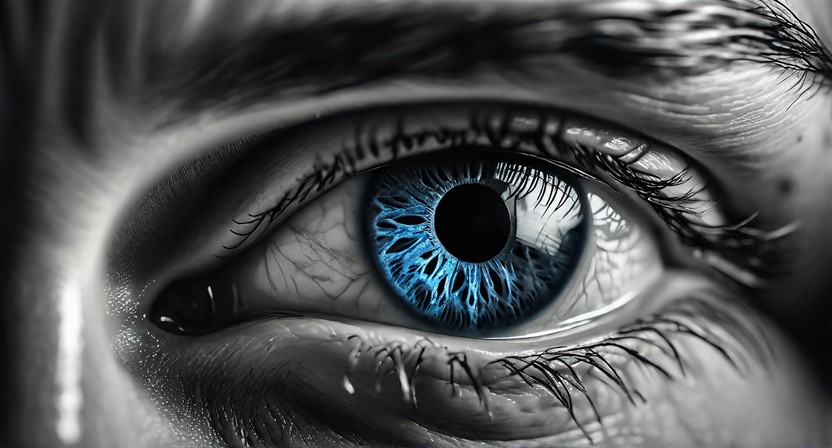How Poor Nutrition Can Dim Your Vision
While genetics and age play significant roles in determining our eye health, our dietary choices can also have a profound impact on eyesight.

While we often hear about the positive impacts of a nutritious diet on our eyesight, it's equally crucial to understand the detrimental effects of poor dietary choices on our vision. Consuming unhealthy foods not only affects our waistlines and heart health but can also cast a shadow over our ocular well-being. Let's uncover the ways in which a bad diet can cloud our vision:
Development of Cataracts
Cataracts are cloudy patches that form on the lens of the eye, leading to blurred or hazy vision. Although aging is a primary factor, dietary choices can also contribute. Consuming excessive amounts of unhealthy fats, sugars, and salt can increase the risk of developing cataracts. A study published in the American Journal of Clinical Nutrition found that diets high in carbohydrates might increase cataract risk.
Macular Degeneration
Age-related macular degeneration (AMD) is a leading cause of vision loss in older adults. It affects the central vision, making tasks like reading or recognizing faces challenging. High intake of saturated fats, found in processed foods and red meats, can elevate the risk of AMD. Conversely, foods rich in antioxidants, such as dark leafy greens and berries, can help protect against this condition.
Dry Eye Syndrome
A diet lacking in essential fatty acids, particularly omega-3, can lead to dry eye syndrome, characterized by insufficient tear production. Omega-3 fatty acids, found in fatty fish like salmon and flaxseeds, help maintain the lipid layer of tear film, preventing dry eyes.
Diabetic Retinopathy
Poor dietary habits can lead to the onset of diabetes, which in turn can cause diabetic retinopathy - a condition where high blood sugar levels damage the blood vessels in the retina. This can lead to blurred vision, floaters, and even blindness if left untreated.
Glaucoma
Glaucoma results from increased pressure within the eye, damaging the optic nerve. While the exact link between diet and glaucoma is still under research, there's evidence suggesting that excessive caffeine or water intake might exacerbate the condition.
Weakened Immunity and Increased Susceptibility to Eye Infections
A poor diet can weaken the immune system, making the eyes more susceptible to infections like conjunctivitis or styes. Essential nutrients, such as vitamin C and zinc, play a role in bolstering our immune defenses. Regularly consuming foods deficient in these nutrients can leave the eyes vulnerable to bacterial and viral invaders.
Reduced Adaptability to Bright Light
Exposure to sudden bright light, like car headlights at night, requires our eyes to adjust rapidly. A diet lacking in specific antioxidants and minerals might slow this adaptation process, posing potential risks, especially while driving at night.
Mitigating the Risks
To combat the potential negative effects of a poor diet on eyesight:
- Diversify Your Diet: Incorporate a variety of fruits, vegetables, whole grains, lean proteins, and healthy fats into your daily meals.
- Limit Processed Foods: Reduce intake of foods high in sugars, unhealthy fats, and preservatives.
- Stay Hydrated: Drink adequate water daily but avoid excessive intake in short durations.
- Consult a Nutritionist: Get personalized dietary recommendations based on your health needs.
Further Considerations
-
Impact of Alcohol and Smoking: Excessive alcohol consumption and smoking, often accompanied by poor dietary choices, can further deteriorate eye health. Alcohol can lead to dehydration, affecting tear production, while smoking exposes the eyes to oxidative stress, accelerating conditions like cataracts and AMD.
-
Regular Eye Check-ups: Along with maintaining a balanced diet, it's crucial to have regular eye examinations. These can help detect and address any diet-related vision issues before they become severe.